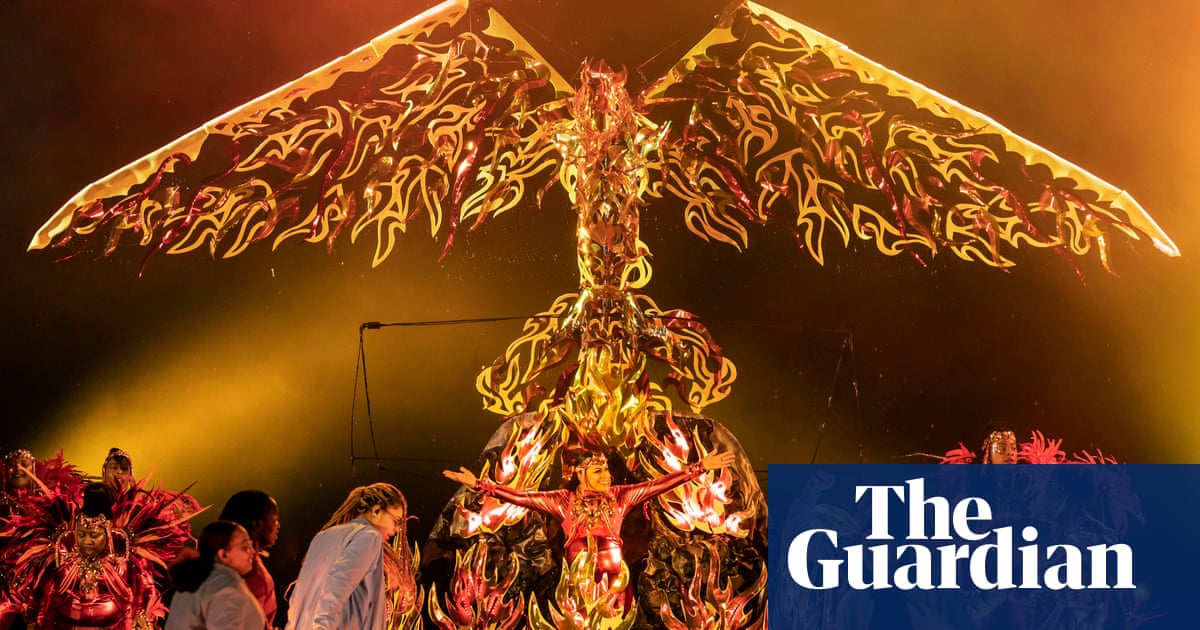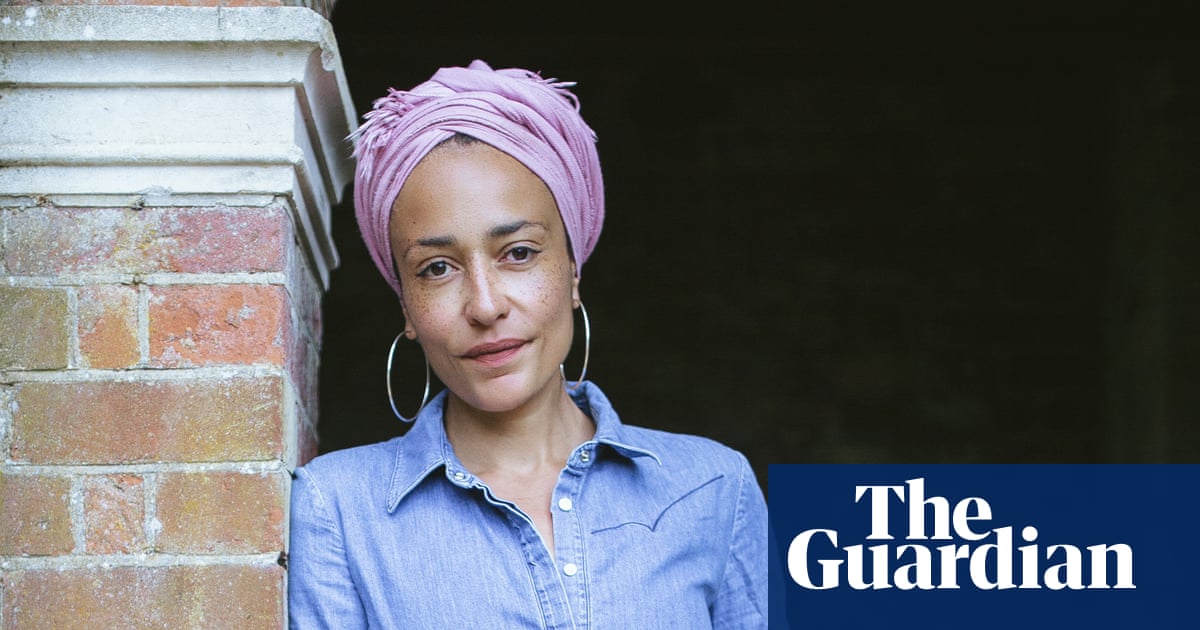
If the opening ceremony of Leeds 2023 is anything to go by, the city’s year of culture will be loud, expressive and incredibly diverse. Hosted by the TV presenter Gabby Logan and BBC radio’s Sanchez Payne, Saturday’s stadium show featured the singer Corinne Bailey Rae arguing with a giant face in the sky made of drones; a spectacular carnival version of the Kaiser Chiefs’ I Predict a Riot performed by dancers from the longest-running West Indian carnival in Europe; the chorus of Opera North singing Chumbawamba’s Tubthumping; and poet laureate Simon Armitage performing a commission about awakening artistic expression in Leeds with his band LYR.
Whether there is a need for Leeds to artistically awaken is in dispute: 10,000 tickets were handed out in exchange for photographic evidence of a piece of art, whether that was a painting, a quilt, a TikTok dance routine or some baked biscuits. The response was so large the organisers ended up with a waiting list.
Leeds 2023 is the “unofficial” city of culture. The city’s official bid to be European capital of culture began about a decade ago but was dashed in 2017 when the European Commission told Leeds it could no longer be considered due to Brexit.
The decision was “heartbreaking” but the city refused to give up, Sharon Watson, who chaired the original bid and is now principal of the Northern School of Contemporary Dance, told BBC Radio 4’s Front Row. “We decided that we deserve this, that we believe in culture, and as a result of that, here we are in 2023, about to deliver a year of culture, of activity which is for everyone.”
The funding has come in a large part from Leeds City Council, one of the drivers of the original bid. While it might be argued that money should not be spent on arts and culture in a city that has some of the highest rates of poverty in the UK, the economics speak for themselves, says Kully Thiarai, chief executive and artistic director of Leeds 2023. Research on previous cities of culture, including Liverpool and Hull, has shown that for every £1 spent on the year-long festival, £4 was generated in private sector investment. A cultural festival is simply a money-making enterprise for a city.
“I don’t think that’s the argument that needs winning,” says Thiarai, who previously ran National Theatre Wales. “What is more important at the moment is the sense of social connection that we need and the sense of joy and hopefulness that we need to generate, and culture does that in bucketloads, right?”
Last year, Leeds made it to the final seven cities hoping to host the 2023 Eurovision Song Contest, but lost out to Liverpool. Rumour has it that it had been a favourite but Leeds Arena’s layout meant the BBC would struggle to get the angles needed for broadcast.
Nevertheless, cultural investment is coming into the city in droves. Channel 4’s regional HQ in Leeds is up and running, the city has been identified as the new home of the National Poetry Centre, which will open in a former church turned nightclub in the north of the city, and British Library North will be situated in Temple Works, a beloved Grade I listed building that had previously been the bane of city planners’ lives during decades of failed restoration schemes.
Thiarai says: “It was interesting when people said Leeds was a ‘sleeping giant’. I think there is some truth to that. We just get on with things and aren’t quite as show off-y as other cities.”
However, there are hundreds of events, exhibitions, performances and installations planned for the next year that are worth showing off about. Three hundred women and non-binary people will spend 24 hours building a “barn like no other”, which will then host a fortnight of WOW (Women of the World) events raising awareness for gender equality. There will be a dystopian film from writer-director James Phillips and Leeds People’s theatre. And perhaps the crowning glory of the festival will be a permanent sculpture by the British Nigerian artist Yinka Shonibare in tribute to a Leeds man, David Oluwale, who drowned after being harassed by racist police in the 1960s.
“I really hope that people understand it’s a reflection of the city itself right now and that, in the future, the legacy is going to be a more thriving creative arts industry,” says Logan, who is Leeds 2023 chair. But the organisers are clear Leeds 2023 is not only for the people of the city. It is hoped that people from around the country and across the world will pay a visit. Logan promises: “There’s plenty to keep you occupied if you’re a visitor for a weekend. It’s a buzzing, buzzing place.”












